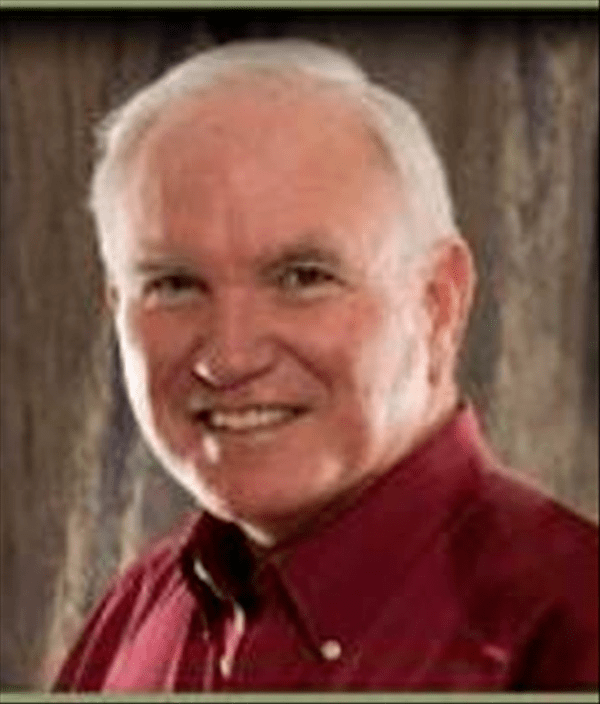Does the Church Get a Failing Grade at Caring for the Poor?

Editor's Note: Pastor Roger Barrier's "Ask Roger" column regularly appears at Preach It, Teach It. Every week at Crosswalk, Dr. Barrier puts nearly 40 years of experience in the pastorate to work answering questions of doctrine or practice for laypeople, or giving advice on church leadership issues. Email him your questions at roger@preachitteachit.org.
Dear Roger,
My son tried to call all the Christian churches of Australia in supporting me, Natalie, whom i'm bedridden to come visit me in my time of illness such as reading inspirational scriptures to uplift my spirit.
Not one of them pastors/elders etc came to see me! Even though I prayed about it constantly. We have no family or friends and are very isolated; yes we have read the bible; having one in one with God but we still need christians on our side for support in a time of need!
Where has Christianity gone today when all Churches do is make money; open Cafés; book shops in their churches; lure people into buying their goods when in reality should be going out to all communities to reach out for the needy etc when they don't; are 2 busy with their own Church Conferences etc!!!
Dear Natalie and Peter,
Many letters like yours come to me. I grieve with you. I am sorry that you are struggling without help and support from the church. I will pray for you right now.
Now, in my opinion, in response to your letter, too often church people are seeking after the things of the world and have forgotten one of the basic reasons for their existence: caring for the poor. Materialism, selfishness, greed, and high taxes all impair the church's ability to help the poor as God intended.
Every church has a focus, whether or not it is aware of it. Many have more than one. No one church can do everything. However, it is essential that it cover the main bases. In my mind the most neglected and most often missed base is caring for the poor and down and out.
Throughout His ministry Jesus both told and showed us how Christians are to act and behave toward others. In other words many things are important; but some things are really essential and cannot be minimized or ignored.
I call it playing “church baseball." Our goal is to hit a home run.
FIRST BASE: He Told Us to Love God and Our Neighbors as We Love Ourselves (Matthew 22:37–40; John 13:34–35).
In my opinion the church in general is not doing well with this priority. In the first century, Christians were known as the people who loved God and loved others. Surveys today reveal that 78% of Americans identify evangelical Christians as the most judgmental segment of American society.
SECOND BASE: He Told Us to Evangelize All Nations (Matthew 28:19–20).
God is on the move in massive parts of our world. American churches are doing their part in reaching the nations. Here at home many churches are reinventing themselves in an effort to be more culturally relevant in order to evangelize the lost more effectively and successfully. (Unfortunately, this comes with the cost of alienating many senior adults.
Nevertheless, it is critical that the church focus more on the young than on the old. After all, over 85% of all the people who will ever choose to follow Christ will make that decision before the age of twenty-five. After age sixty-five the decision to follow Jesus drops to one in sixty-seven thousand.
Before we pat ourselves on the back about our evangelism, the fact remains that 98% of American Christians have never led a single person to saving faith in Christ.
THIRD BASE: He Told Us to Teach and Disciple All Believers (Matthew 28:19–20; John 21:15–17).
We must shore up this area dramatically. In my experience, compared to Christians in most other parts of the world, American Christians fall woefully short in Biblical understanding, growth, and obedience. Most American Christians have chosen a comfortable pew and they are not getting up.
We struggle here with two misconceptions. First, sermons can never disciple the flock. Sermons can set the stage for discipleship, but they can never, on their own, disciple. Second, most American small groups are inept at discipleship. Spiritual children are not good at leading other children. We need spiritual mothers and fathers to help mature spiritual children and the church is woefully lacking in spiritual mothers and fathers.
HOME RUN: Jesus' Heart Beats to Care for the Poor and Hurting Wherever and Whenever They May be Found (Matthew 25:34–46).
Early in my ministry I was sorting out what "ministry market " God wanted for Casas. What would be our goals and purposes. What would the model look like?
As I thought about Casas' focus I realized that there was one group of people whose need for ministry would never run dry. If we focused our ministry to these people, we would never run out of work.
When Jesus read from Isaiah during the Sabbath Synagogue Service I believe that He outlined marching orders both for Himself and for us.
He went to Nazareth, where he had been brought up, and on the Sabbath day he went into the synagogue, as was his custom. He stood up to read, and the scroll of the prophet Isaiah was handed to him. Unrolling it, he found the place where it is written:
“The Spirit of the Lord is on me, because he has anointed me to proclaim good news to the poor. He has sent me to proclaim freedom for the prisoners and recovery of sight for the blind, to set the oppressed free, and to proclaim the year of the Lord’s favor.”
Then he rolled up the scroll, gave it back to the attendant and sat down. The eyes of everyone in the synagogue were fastened on him.... “Today this scripture is fulfilled in your hearing.” (Luke 4:16–21)
As I reflected on this passage I decided that I could sum it all up in three simple words: "helping hurting people."
Some churches want only to go after the sheep that are outside the fold. Others are most concerned with caring for the sheep that are safely in the fold. Both are fine. But it is best to do both.
New school years always begin with a series of teacher meetings. One of our church members found herself sitting next to a brand new teacher who had recently moved to Tucson.
They got to talking about churches and our church member teacher mentioned that she attended our church, Casas. Immediately, the new teacher brightened and said, "Oh, I have heard of that church. That's the church that helps people."
I was so pleased. We were “Helping Hurting People.”
Early in my ministry I was up early and out the door. Three church members were having surgery in two different hospitals, and if everything went just right, I had time to pray with all three before they left for surgery. I prayed with two at Tucson Medical Center. I hurriedly got into my car and raced down Speedway to St. Mary's Hospital. I didn't make it. It didn't matter that I had made two calls already, all they wanted to know was why I wasn't there for their loved one. They knew how to lay on the guilt. I decided then and there to fix this.
I recruited Betty Lefler and asked her to recruit and manage a group of people who would personally set aside time to make one or more hospital visits each week. As we grew, so did her Sunshine Committee. People in the hospital are obviously hurting. So, we guaranteed our people that when they were in the hospital they would get at least two visits every day—one from a pastor and one from the Sunshine Committee.
That committee expanded over time to caring for “shut-ins,” fixing cars for single moms, and taking communion to people who were unable to attend church for whatever reason.
By the way, not all the poor look poor. The man driving a BMW financed fully by the bank can be more than poor. The family may be well-dressed for church; unfortunately, unless they told you, you might never guess that they just lost their home—and car. Of course, as we look under the bridge, we see the people we all would agree are poor.
The poor need help. “If there is a poor man among your brothers in any of the towns of the land that the Lord your God is giving you, do not be hardhearted or tightfisted toward your poor brother” (Deuteronomy 15:7).
Every church needs a benevolence committee. Some money needs to be in the budget, and the committee is to raise money and protect the pastor. Most pastors are poor at handling panhandlers.
I remember Christmas and I was alone in the church office when a man came in and asked for money to feed his children who were hungry. With a pastor's heart I had often given money, usually mine, to help the poor in need. As I listened to this man's story my heart ached. I wanted to go out and comfort the children who were waiting in the car. He said that I didn't need to do that. But I felt so sorry for them. When we reached the car I said to the ten-year-old, “I am so sorry you don't have enough to eat. When is the last time you had something to eat?” The fat, little boy stammered, “Uh, about an hour ago.”
I got out of the benevolence business. All needs were referred to wise church people who paid overdue electric bills and made house payments, supplemented rental payments, and paid for car repairs.
Natalie and Peter, the Bible is the standard of where and how the church is to focus its ministry on earth. It certainly failed in helping you. I am sorry. How churches operate and minister has to do with resources. There are not enough to help everyone in need. However, if the church were to function properly according to Biblical principles, many more hurting people would find help and succor from the church people in their times of need.
Alexander MacLaren used to say, “Be kind to everyone you meet because everyone you meet is fighting a battle.”
Love, Roger

Publication date: June 24, 2014
Originally published June 24, 2014.







